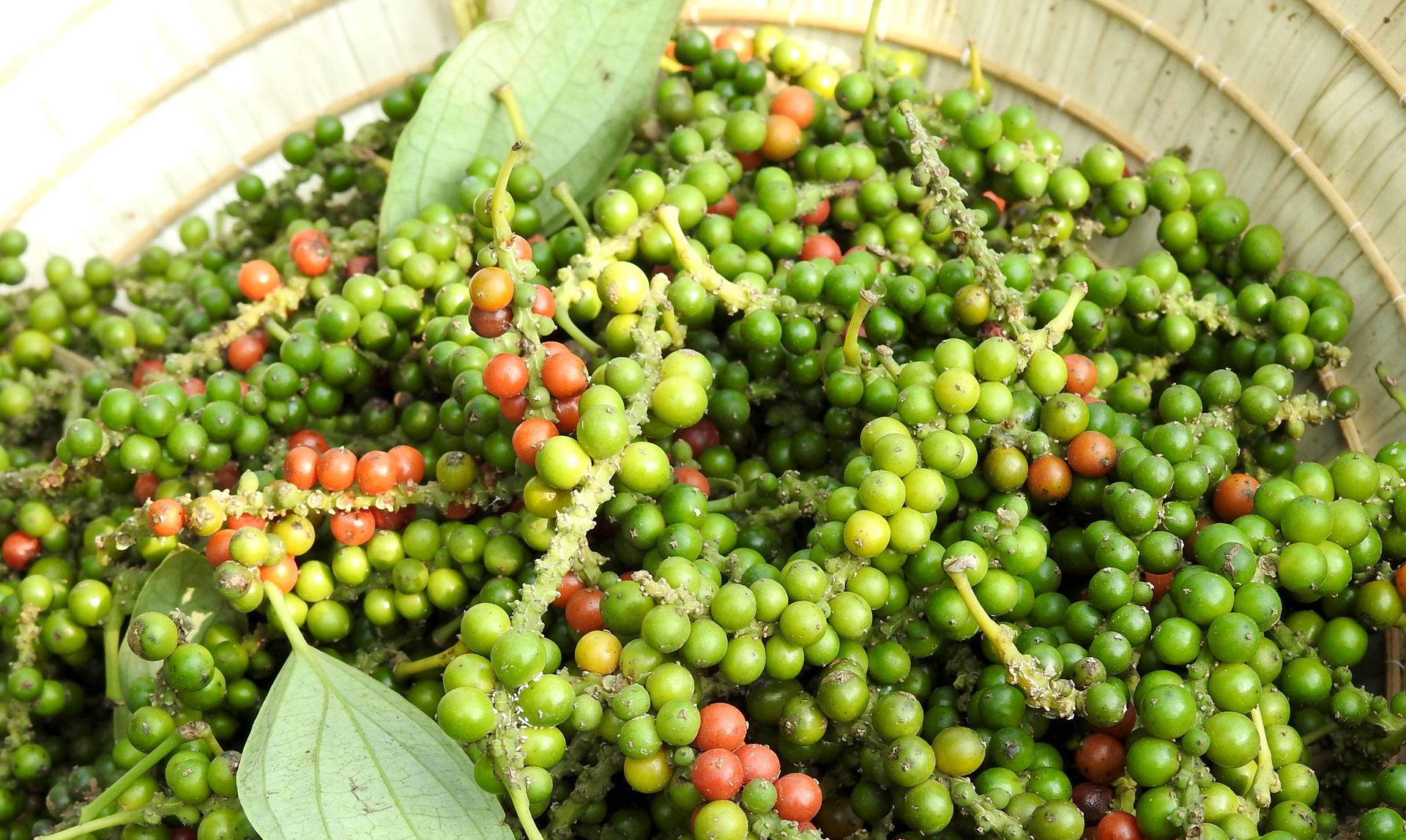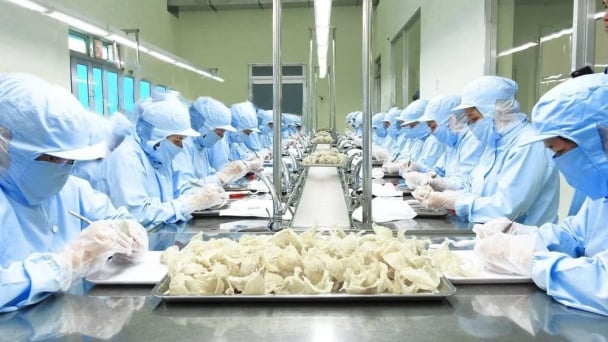May 16, 2025 | 14:41 GMT +7
May 16, 2025 | 14:41 GMT +7
Hotline: 0913.378.918
May 16, 2025 | 14:41 GMT +7
Hotline: 0913.378.918

Pepper has just been harvested by farmers in Dong Nai. Photo: Son Trang.
According to the Vietnam Pepper and Spices Association (VPSA), Vietnam's pepper exports to China increased sharply in the first four months of this year. In April alone, Vietnam's pepper exports to China reached nearly 10,000 tons, up 48 times compared to April 2022.
Generally, in the first 4 months of this year, pepper exports to China reached 36 thousand tons, an increase of more than 15 times (1,430%) over the same period and far exceeding the 20 thousand tons that Vietnam has exported to the market. This is in the whole year of 2022. With the above export volume, China is accounting for 35% of the total export volume of our country in the first 4 months of this year, a solid increase compared to t3% in the 4 months of 2022.
Meanwhile, pepper exports to the US (the largest market of Vietnamese pepper for many years) fell sharply. In the first 4 months of this year, pepper exports to the US only reached 16 thousand tons, down 22.1% over the same period in 2022. These figures show that China has surpassed the US to become the largest market of Vietnamese pepper in the first 4 months of this year.
According to some traders in the pepper industry, China has accelerated Vietnam's pepper imports since the beginning of this year after the country lifted strict disease control measures and reopened the economy. In addition, the falling pepper price is also one of the factors that pushed the Chinese market to boost buying.
Thanks to China's increase in pepper purchases, pepper prices in Vietnam have increased sharply since the end of April. By the end of May, pepper prices were, on average, VND 73,000/kg, up 13-14% compared to the first quarter and 25% compared to the end of 2022.
The increase in pepper prices in Vietnam is also because many pepper growers have kept their goods waiting for higher prices after selling a part to cover costs.
Concerns that the output of the next crop may be affected by the drought caused by the return of the El Nino phenomenon and the shrinking area as people in some localities switch to growing fruits for higher incomes are driving the market to appear speculative buying activities with the expectation of higher prices in the last months of this year.

Organic pepper garden of Thien Nong farm, Binh Phuoc. Photo: Son Trang.
According to VPSA, pepper production in the 2022-2023 crop is forecast to increase by 10% to about 200,000 tons, thanks to favorable weather factors. However, in some localities, there is a trend of cutting down pepper trees to switch to other fruit trees for higher income, especially durian.
As in Dong Nai, in the past 6 years, the pepper area has continuously decreased. Information from the Dong Nai Department of Agriculture and Rural Development shows that in 2018, the pepper area of this province was 17,000 hectares. Still, by 2022 it was only more than 11 thousand hectares.
At first, farmers cut down pepper to switch to growing jackfruit and pomelo… But recently, when durian has a high price because it is officially exported to the Chinese market, Dong Nai farmers cut down pepper to grow durian. Therefore, while the pepper area in Dong Nai decreased sharply from 2018 to 2022, at the same time, the size of durian increased more than two times to 11,500 hectares.
VPSA said that if the cutting of pepper to switch to fruit trees continues for a long time, there may be a supply shortage in the next 3 years.
In addition, the massive cutting of pepper trees also has potential risks that Vietnam will lose market share to other pepper exporting countries, especially Brazil. Brazil has many favorable conditions to expand the area, such as weather, large and concentrated land, and not scattered like Vietnam. The cost of agricultural land is also cheap. Therefore, growing production in Brazil is easier, faster, and more affordable than in Vietnam.
Brazil is the second largest pepper exporting country in the world, after Vietnam, with a market share of 21%. One problem that the country has not been able to solve is the residue of Ethylene Oxide (ETO). Vietnam can process ETO, so Brazil exports pepper to Vietnamese factories to remove this substance.
Translated by Ha Phuc

(VAN) Japan's efforts to lower the price of rice through the release of its stockpile may finally be making some progress, albeit at a snail's pace.

(VAN) U.S. tariffs are not only a 'shock', but also an opportunity for Vietnamese businesses to renew their mindset toward comprehensive development.

(VAN) As Bac Giang lychee enters the harvest season, Minister Do Duc Duy expects that the fruit will contribute greatly to agricultural exports due to standardized production and deep processing.

(VAN) Consumers have shown a preference for free-range eggs, but those farming systems are more vulnerable to biosecurity risks like bird flu.
/2025/05/09/5701-1-184335_301.jpg)
(VAN) Vietnam’s eel exports nearly doubled thanks to a mud-free farming model, opening up new prospects while still facing numerous barriers related to international standards.

(VAN) Minister Do Duc Duy warned that if production is not professionalized and supply chains are not transparent, the U.S. market could become a growth bottleneck.

(VAN) Delegating surveillance responsibilities to local authorities is a cost-saving and efficiency-boosting measure that removes a key bottleneck for enterprises, according to Director General Duong Tat Thang.